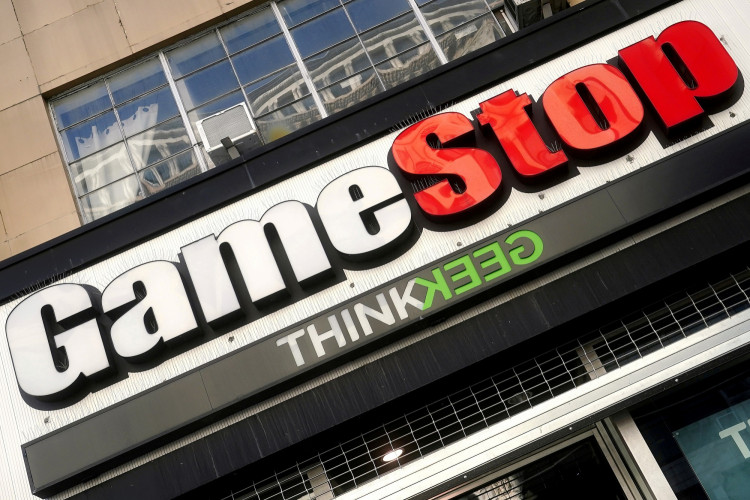GameStop shares experienced a volatile trading session on Friday, as the company's disappointing earnings report and unexpected share sale announcement overshadowed the much-anticipated YouTube livestream by Keith Gill, famously known as "Roaring Kitty." By the market's early hours, GameStop shares had shed their premarket gains, falling by 5% by 6:45 a.m. ET, after initially climbing more than 30%.
The video game retailer reported a $32.3 million loss for the first quarter, which, although narrower than the $50.5 million loss in the same period last year, failed to meet analyst expectations with net sales of $881.8 million. The financial performance raised concerns among investors about the company's long-term viability, especially as it grapples with shifting consumer preferences towards e-commerce for video games and collectibles.
Adding to the market's jitters, GameStop revealed plans to raise over $3 billion through the sale of 75 million shares. This unexpected move, announced just hours before Gill's livestream, sent the stock plummeting nearly 10% before the opening bell. Russ Mould, investment director at AJ Bell, commented, "No matter how much noise somebody makes on whatever platform, at some stage the company will have to generate profits and particularly cash flow to sustain that valuation."
The anticipation around Keith Gill, whose advocacy for GameStop in 2021 sparked a historic short squeeze, had initially driven the stock higher. Gill's scheduled livestream on Friday marked his first in almost four years, drawing significant attention from his followers and the broader investment community. His previous championing of GameStop had propelled its shares up by as much as 1,600% at the height of the meme stock frenzy.
Despite the hype, the livestream's impact on GameStop's stock was muted by the company's financial disclosures. "Despite Keith Gill's renewed weekend appearance and ensuing GME price spike, retail traders do not look to be sticking around too long in the trade," analysts at Vanda Track noted earlier this week. The data suggested that high-frequency institutional traders were quick to capitalize on the retail-driven spikes, undermining the sustainability of such rallies.
Gill, known as DeepF------Value on Reddit, became a symbol of the retail trading revolution that took Wall Street by storm in 2021. His posts and videos on the WallStreetBets subreddit inspired countless retail investors to pile into GameStop, challenging hedge funds and institutional investors who had bet against the stock. His return to the spotlight had reignited some of that fervor, with GameStop shares surging nearly 150% since mid-May, following a series of cryptic posts on X (formerly Twitter).
However, the broader market conditions today are starkly different from those in 2021. "Meme stock activity isn't anywhere near it was in 2021, even though we are seeing dramatic one-day moves," said Jason Draho, head of Asset Allocation Americas at UBS Global Wealth Management. The overall speculative energy that fueled the original rally has dissipated, with the IPO market remaining dormant and M&A activity subdued.
The latest financial results from GameStop underscore the challenges the company faces in achieving sustainable growth. While the retailer continues to capture headlines and the imagination of retail traders, the fundamental question remains whether it can translate this interest into long-term profitability. As Russ Mould aptly put it, "The question that everybody needs to ask is has anything fundamentally changed about the company's competitive position in the last month?"
GameStop's earnings call highlighted the ongoing struggle to adapt to a market increasingly dominated by digital sales. The company's pivot towards e-commerce and efforts to streamline operations are ongoing, but the road to recovery appears fraught with obstacles. Meanwhile, other names associated with the meme stock phenomenon, such as AMC Entertainment and headphone maker Koss, also saw declines, reflecting the broader market skepticism about the sustainability of these speculative trades.






